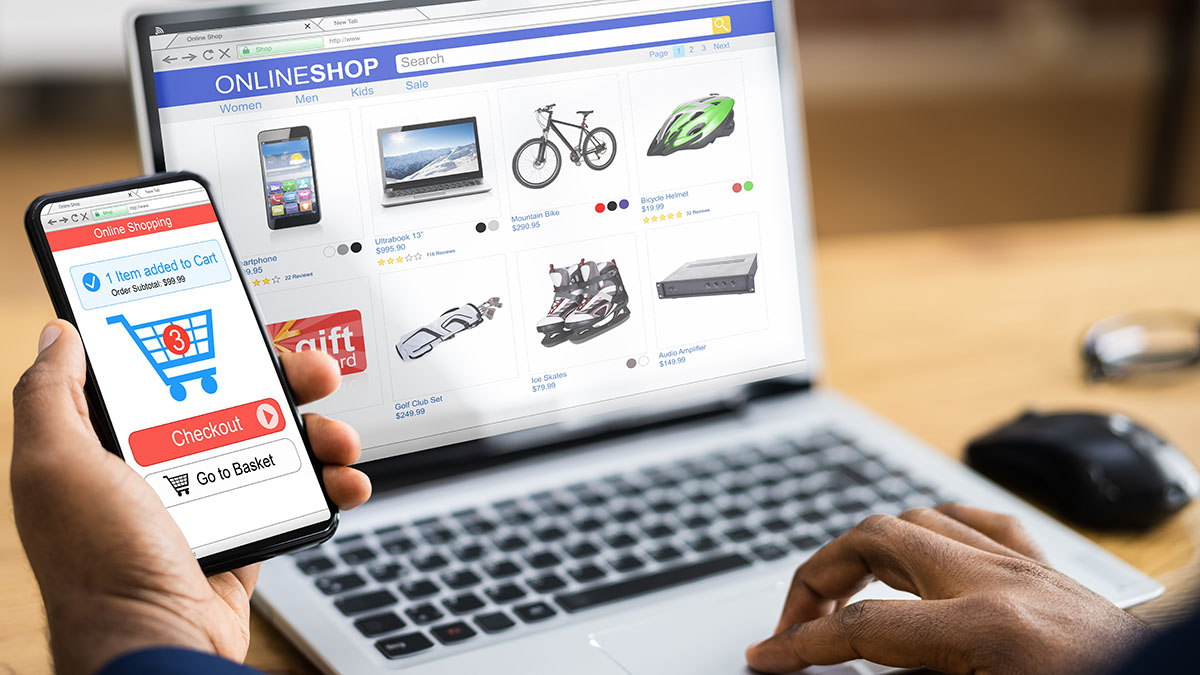The year 2021, has witnessed a more significant change in the banking sector. Dealing with…
9 Website Security Essentials Every Ecommerce Retailer Needs

Setting up an eCommerce store is a huge task. From the website design, finding suppliers, adding content, and everything in between, it’s easy to forget one of the essential parts – eCommerce website security.
Your website will hold a mountain of private information, including payment details, customer data, and product information.
Due to the amount of valuable data held on eCommerce stores, they are frequently the target of cyberattacks.
Losing all that information can be devastating to the company and the customers, so it’s critical you keep your store and data protected. Let’s look at 9 security essentials every eCommerce retailer needs.
1. Make Strong Passwords Mandatory
You can set rules for the kind of password your customer needs to set to have an account with your store. For example, you can make it, so they need to use letters, numbers, and special characters for their password. Force them into creating one that is hard to hack, thus helping give your customers an extra layer of protection.
2. Use a VPN
When using your online store, connecting to a VPN beforehand can help prevent any security breaches. Since a VPN encrypts your essential data and masks other personal information, your store and its data will now be extremely safe. There are few ways to keep such large amounts of private details more secure than by always being connected to a VPN.
3. Choose a Reputable Host
Signing up for a cheap or sketchy hosting company can only end in disaster. A high-powered, professional, and security-minded hosting service is the only option you should be choosing. Trusting so much valuable data to the wrong host could kill your business in no time at all.
4. Employee Training
Not every security breach will be because of cybercriminals and online scams. Sometimes, severe security issues are caused by human error. Namely, your employees. All it takes is for one of your staff to absentmindedly reveal certain information over the phone to a customer or someone posing to be a customer, and you could be facing a big problem.
Have strict security policies in place, ensure that you take firm action on anyone who doesn’t take security seriously, and have frequent training and refresher lessons for all employees.
5. Purge Customer Data
Not every piece of customer data needs to be stored in your system forever. And the fewer bits of data you have, the less data there is to worry about. Of course, obvious things such as an address, phone number, and order information are necessary. But, anything that you don’t need should be purged. Have regular clean-up sessions and remove any data that isn’t essential for your business.
6. Monitor for Bots
Bots account for more than 50% of traffic online. This means that not every visitor to your store is a genuine person. 30% of all eCommerce fraud is carried out by bots. Since this number is not going down any time soon, the best way for you to combat it is to install software that detects bots on your site in real-time. This technology can detect their presence and prevent their actions. With this software, you won’t have to worry about price scalping or data being stolen.
7. Add SSL Protection
A trustworthy and quality host is essential. However, you should add SSL protection to your site since this is something the host cannot do. Having both of these elements will make your site fairly watertight. With an SSL certificate, the data that goes between your website and the customer’s computer, such as credit card info or passwords, will be encrypted.
8. Back-Up Your Data
If there is an outage or an attack on your site, you’ll need to get back up and running as soon as possible. For every minute you are down, you could be losing revenue. For this reason, you should back up your data (in multiple places if you prefer).
9. Test Your Site
Testing for vulnerabilities will help you see any security failings before hackers can take advantage of them. Regular penetration testing is required if you’re going to stay one step ahead of the bad guys.
Every day, around 30,000 cyber-attacks occur. Rather than wait and deal with the problem if and when it happens, put steps and processes in place such as adding SSL, forcing strong passwords, and using a VPN to keep your website as safe as possible for you and your customers.



